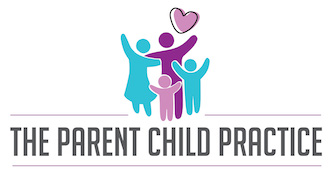Have you ever suspected that you might have ADHD, even as an adult? You are not alone. There are a high percentage of adults that remain undiagnosed and/or untreated and this is likely because the increased level of awareness and improved access to providers for ADHD has only occurred in the more recent years.
Turning Sibling Rivalry into Sibling Love: 10 Practical Tips
Why a bedtime routine can build awesome confidence in children
I would like to start off by saying that my husband should have been the guest blogger for today’s post. Why? Because he typically does the family bedtime routine and he is AWESOME at it! I mean amazingly awesome. By creating a routine for bedtime and establishing order during this process he has helped our son declare his independence and develop a stronger sense of self, foster a closeness between the two of them, contribute to our son feeling a sense of control over what happens to him, and feel respected and heard.
What works? Instructional Strategies for Children with Dyslexia: Part Three
In this third and final three part series blog post on Dyslexia, I will share information about effective instruction and intervention for working with children with Dyslexia. It is very common that as my evaluation process comes to an end that parents will ask me, “What is next now that we have a diagnosis?” The “what’s next” is the most important thing that a parent can do for their child and it is even more important than the diagnosis that they receive from me. If a child is diagnosed with Dyslexia but does not receive appropriate instruction and intervention then they will not make adequate progress and will continue to struggle.
Dyslexia Evaluations (Psychoeducational Assessments): Part Two
In my previous blog post I shared information about Dyslexia so that readers could have a better understanding about what it is, what causes it, and spot the possible red flags for identifying it. At the conclusion of that blog post, I recommended that if you suspected your child or yourself has Dyslexia that you would want to seek out a comprehensive psychoeducational assessment. Therefore in this second blog post of my three part series on Dyslexia, I will share information about psychoeducational assessments. The goal of this post is to demystify the process, explain the components, and ultimately help the reader better advocate for themselves or their child(ren) and discriminate high quality from low quality evaluations.
Understanding Dyslexia: Part One
Approximately once per week I receive a call from a parent, college student, or adult wanting to understand more about Dyslexia. There are many articles on the internet, numerous conversations on listservs, and a lot of individuals who are ready to disseminate information to others based on their own personal experience or readings about Dyslexia. Some of this information is accurate and some of this information is completely inaccurate. Consequently, when parents call me, I sometimes ask what they already know about Dyslexia. In addition to scheduling families for evaluations, my goal is to educate and empower families with information that is accurate. Therefore, in today’s blog post I am going to reveal my responses to commonly asked questions that families have for me about Dyslexia. I will also share a second blog post about possible components of a Dyslexia evaluation and recommended instructional strategies for children identified with Dyslexia.
This is your child's brain on television
12 Mistakes of Modern-Day Parenting
Parenting is not an easy task and there is not a rule book for how raise a child. Of course, every parent make mistakes; however, developing awareness of our parenting mistakes is the key to charting a different course and raising successful kids. I hope that by sharing this infographic created by Sundance Canyon Academy that you can re-examine your current role as a parent and determine if you have made or are currently making any of these common mistakes.
Encouraging the Gift of Gratitude in Your Children
Five Date Ideas to Keep the Romance Crisp During the Autumn Season
For couples with children, one of the secrets to being awesome parents is to remember to schedule regular date nights that allow you to focus on one another. It is very easy to become consumed with the needs of our child(ren) and forget that you also have a relationship with your partner to nurture and continue to grow.



